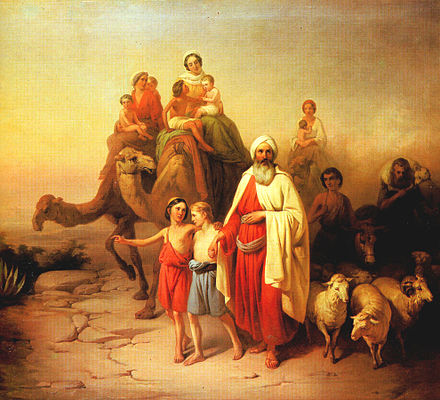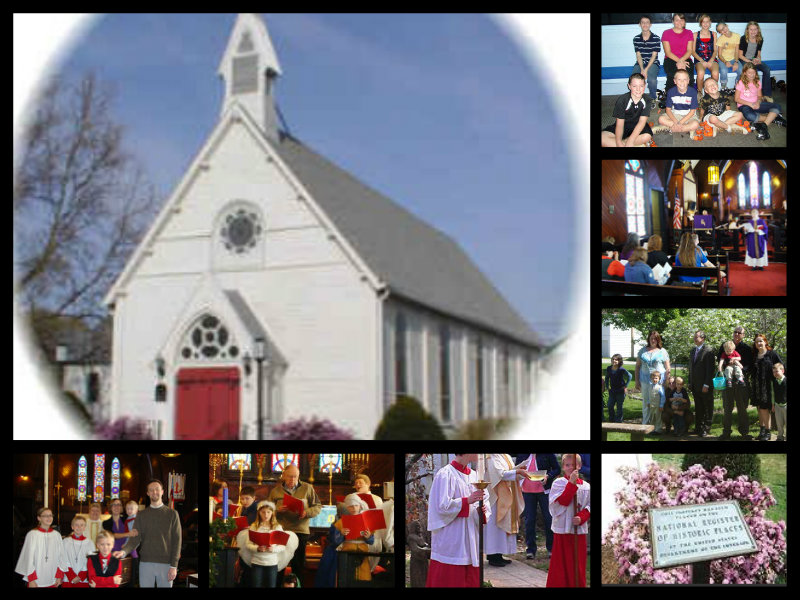
Abraham by Joseph Molnar, 1850 The story of Abram in the fifteenth chapter of the Book of Genesis is strange. Abram, who will become Abraham, has a vision of God. In this vision, Abram confronts God about the heritage he will leave behind. Can you imagine what was on Abram’s mind? He left the comfort of his father’s home to travel as a wandering Aramean.[1] In other words, he left the safety of the known to face the unknown. Abram gave himself totally to God.In the Genesis story, we read of his despair in God’s slowness in making his promise become true. Thus, God tells him to make certain sacrifices (things we find gory, but to a wandering shepherd seemed natural) and then he waits while chasing off the vultures. The story becomes more mysterious and has an eerie quality. Deep sleep, darkness, smoking pot, and burning torch all make for a description for a “B” rated monster movie with a screaming blonde and a dashing hero. But this is not a trivial story of darkness and death; it is instead a story of life and future. God makes his covenant with Abram that his descendants will be as many as the stars in the sky and inhabit the earth from the Nile to the Euphrates Rivers. If you consider that Arabs and Jews both claim their lineage and heritage from Abram (that is, Abraham), then the covenant has been realized. The only question remaining is how are these half brothers—offspring of Abram—going to settle their claims for the land? The Psalmist[2] seems to understand what is needed to make the claim to Abram’s covenant and heritage. The Psalmist wrote, “O tarry and await the LORD’S pleasure; be strong, and he shall comfort your heart; wait patiently for the LORD.”[3] After Abram went through his litany of woes and his cries of abandonment God came to him and told him to be patient. The promises of God are real and do come, but there are things that must be done in order for God to act.
All of which is spoken by the Psalmist in his hymn of praise. We are all, in one way or another, offspring of a wandering Aramean. None of us got Nevertheless, almost every move I made required someone to step out in faith. My parents, who were caught up in the poverty of the Great Depression, were marginally able to provide for their children, stepped out in faith to face new challenges, new opportunities, and new dangers throughout the nineteen-thirties, the forties, and the fifties. In my own adult life, every move was a challenge and every move was a place of learning and a place to grow in faith. I am certain that most of you can tell similar stories. But, can any of you tell a story of being in conversation with God? Can any of us tell of being told by God to gather up animals for sacrifice? On the latter question, I hope not. Being in conversation with God, however, is a daily journey into our souls. Nonetheless, we do have a covenant with God. It was made by the sacrifice of God in Jesus Christ on the cross. That sacrifice was made once for all. Unlike Abram’s sacrifice, we are not called on to destroy animals or even nail ourselves to crosses. We are called on to be sanctified—that is, to be willing and ready to give ourselves as a living sacrifice to the work God calls us to do. We say exactly that in Rite I in our Eucharistic Prayer. Think about these words as I recite them before the Altar. I pray in the Eucharistic prayer, “And here we offer and present unto thee, O Lord, our selves, our souls, and bodies, to be a reasonable, holy, and living sacrifice unto thee…” A living sacrifice is also a strange way of speaking. What do we mean by those words? If you ask me, this is what I think they mean:
Paul, in his happy letter to the Philippians, does identify the problem with which most of us deal. The problem is that we are egocentric—we are self-absorbed. We have not taken the time to rise from our own egos to understand that we belong to a community, a body, and if that community is to succeed, each of member must contribute to that success. Nothing happens without everyone’s effort. A preacher can stand in the pulpit Sunday after Sunday exposing the Scriptures, but if nothing happens in the individual’s heart and mind, the work is in vain. We may not think of ourselves as enemies of Christ. Nevertheless, we often are. Think about these words of Paul, “For many live as enemies of the cross of Christ; I have often told you of them, and now I tell you even with tears. Their end is destruction; their god is the belly; and their glory is in their shame; their minds are set on earthly things. But our citizenship is in heaven…”[4] Hear also the words of Jesus. He warns us that attainment of citizenship in heaven is not easily obtained. It takes sacrifice, it takes a willingness to serve, and it takes most of all faith that God does love the created order. Because we are included in that love, we too must love the created order. That is the sacrifice that is required of us. We are called to live beyond our own egos and to be willing to be Christ on earth. If Jesus is not seen in us and through us, then we have failed in the commission to be Christ’s Body. The sacrifices we are asked to make are not difficult. But, the effort must be made and the sacrifice offered. Otherwise, our lives are ones of daily drudgery, lives of just getting along. God does not want that from or for us. God, I am certain, wants us to arise and shine and reflect the glory that has dawned upon us.
[1] Deuteronomy 26:5. [2] Psalm 27. [3] Psalm 27:18. [4] Philippians 3:17—4:1a. Top: A painting of Abraham’s departure by József Molnár. Icon: The bosom of Abraham – medieval illustration from the Hortus deliciarum ofHerrad of Landsberg (12th century). |
A Living Sacrifice
22 Monday Feb 2016
Posted in Uncategorized

